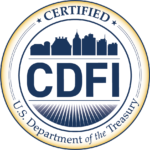Stay Smart and Stay Safe from Payment App Scams
September 2024
College life is busy, energizing, and of course… expensive. It’s full of lectures, labs, homework,
group projects, and discovering who you are. It means you have many reasons to be here and there
and everywhere – and the need for a quick and convenient method of sending or receiving money. Enter peer to peer (P2P) payment platforms like Venmo, Cash App, Zelle, and many others.
As convenient and wide spread as P2P payment platforms are, they are also a common tool used by fraudsters. Venmo and Cash App have long been in the spotlight for their vulnerabilities to fraud and scams. Knowing what to watch out for is your best defense against becoming a victim yourself.
Here are some of the most popular Venmo and Cash App scams to be aware of:
- “Accidental” money transfers or overpayments (using money from stolen cards): When
you refund them, the scammer has changed the account number to their own. - “Friends” requesting cash: Whether your friend has been hacked or impersonated, don’t
send cash without confirming they are actually the person you know. - Fake rare item sellers: When you send your payment, the seller and item disappear!
- Fraudulent invoices: If you sell an item, a buyer may show you a fake Venmo payment
confirmation. - Phishing/smishing attacks: Scammers send fake emails or texts claiming to be from
Venmo, pressuring you to take action or your account will be charged or telling you your
account has unauthorized activity. - Fake prizes: To claim a reward, you are told to click on a link and sign into your payment
app – where your account credentials are stolen. - Job scams: A job offer may come with a little something extra – a fee for onboarding for example.
Once the fee is paid, the job disappears. - Class action settlement claims: You may be notified that you are entitled to a monetary
award but must first pay a claim fee.
Avoiding Scams
To avoid becoming a victim of fraud, keep these helpful tips in mind:
- Ignore suspicious messages, and never follow their instructions.
- Contact friends, businesses and financial institutions using contact information you can
independently verify. - Watch out for fake websites and email addresses for Venmo, Cash App and many
financial institutions. - Be wary of job offers or products that seem too good to be true.
- Use caution when asked to pay fees for rewards or job opportunities.
- If a scam artist does transfer funds to you, don’t deposit them into your account.
- Only purchase from reputable online retailers.
- Verify payments made to you are in your account before shipping items you sold.
- Choose Zelle whenever possible for a more secure and trusted payment experience. Zelle is a verified and trusted financial services partner that is built right into many digital banking platforms, including UCU’s digital banking and mobile app!
If you’ve already been scammed, take these steps:
- Report the fraud to the payment platform and financial institution.
- Update your passwords and login credentials as soon as possible.
- Report the fraud to the Federal Trade Commission at identitytheft.govExternal Link.
Your Best Bet
Again, remember that UCU offers Zelle right within digital banking. Not only does this make
payments incredibly easy, but it also provides you with enhanced security. It’s a great way to pay
friends for a share of groceries as well as for parents to send cash to their college students. To
learn more about our digital banking, visit us at ucumaine.com or give us a call at 800 696 8628.




